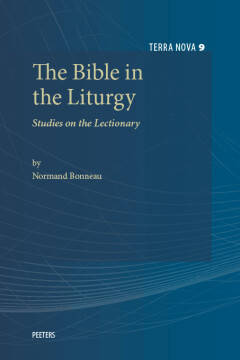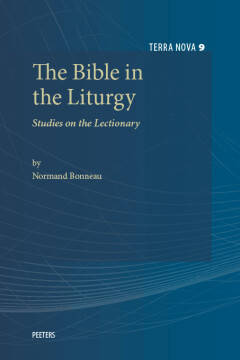
Bedankt voor het vertrouwen het afgelopen jaar! Om jou te bedanken bieden we GRATIS verzending (in België) aan op alles gedurende de hele maand januari.
- Afhalen na 1 uur in een winkel met voorraad
- In januari gratis thuislevering in België
- Ruim aanbod met 7 miljoen producten
Bedankt voor het vertrouwen het afgelopen jaar! Om jou te bedanken bieden we GRATIS verzending (in België) aan op alles gedurende de hele maand januari.
- Afhalen na 1 uur in een winkel met voorraad
- In januari gratis thuislevering in België
- Ruim aanbod met 7 miljoen producten
Zoeken
Omschrijving
The post-Vatican II revision of the Lectionary for Mass (Ordo Lectionum Missae), more particularly the Lectionary for Sundays and Solemnities, was no mean accomplishment. Never before in the history of liturgy has so thoroughly-researched and carefully-conceived a revision of the Lectionary been carried out. Within two decades of its promulgation in 1969, it was adopted and slightly adapted as the basic template for the Common Lectionary (1983), now the Revised Common Lectionary (1992), used regularly in countless churches throughout the world. Nonetheless, the principles of reading selection and patterns of reading distribution that shape it - its "architecture" - remain little known. The studies collected in this volume present and elucidate key features that contribute to its design. Indispensable for the liturgical quickening of scripture, the Lectionary contains the words of Scripture that when proclaimed are transformed into the living Word of God (Christ "is present in his word since it is he himself who speaks when the holy scriptures are read in church" Constitution on the Sacred Liturgy 7), thus providing nourishment for those who gather at the "table of the Word" (Dogmatic Constitution on Divine Revelation 21).
Specificaties
Betrokkenen
- Auteur(s):
- Uitgeverij:
Inhoud
- Aantal bladzijden:
- 247
- Taal:
- Engels
- Reeks:
- Reeksnummer:
- nr. 9
Eigenschappen
- Productcode (EAN):
- 9789042947207
- Verschijningsdatum:
- 11/04/2023
- Uitvoering:
- Paperback
- Formaat:
- Trade paperback (VS)
- Gewicht:
- 303 g

Alleen bij Standaard Boekhandel
+ 281 punten op je klantenkaart van Standaard Boekhandel
Beoordelingen
We publiceren alleen reviews die voldoen aan de voorwaarden voor reviews. Bekijk onze voorwaarden voor reviews.









